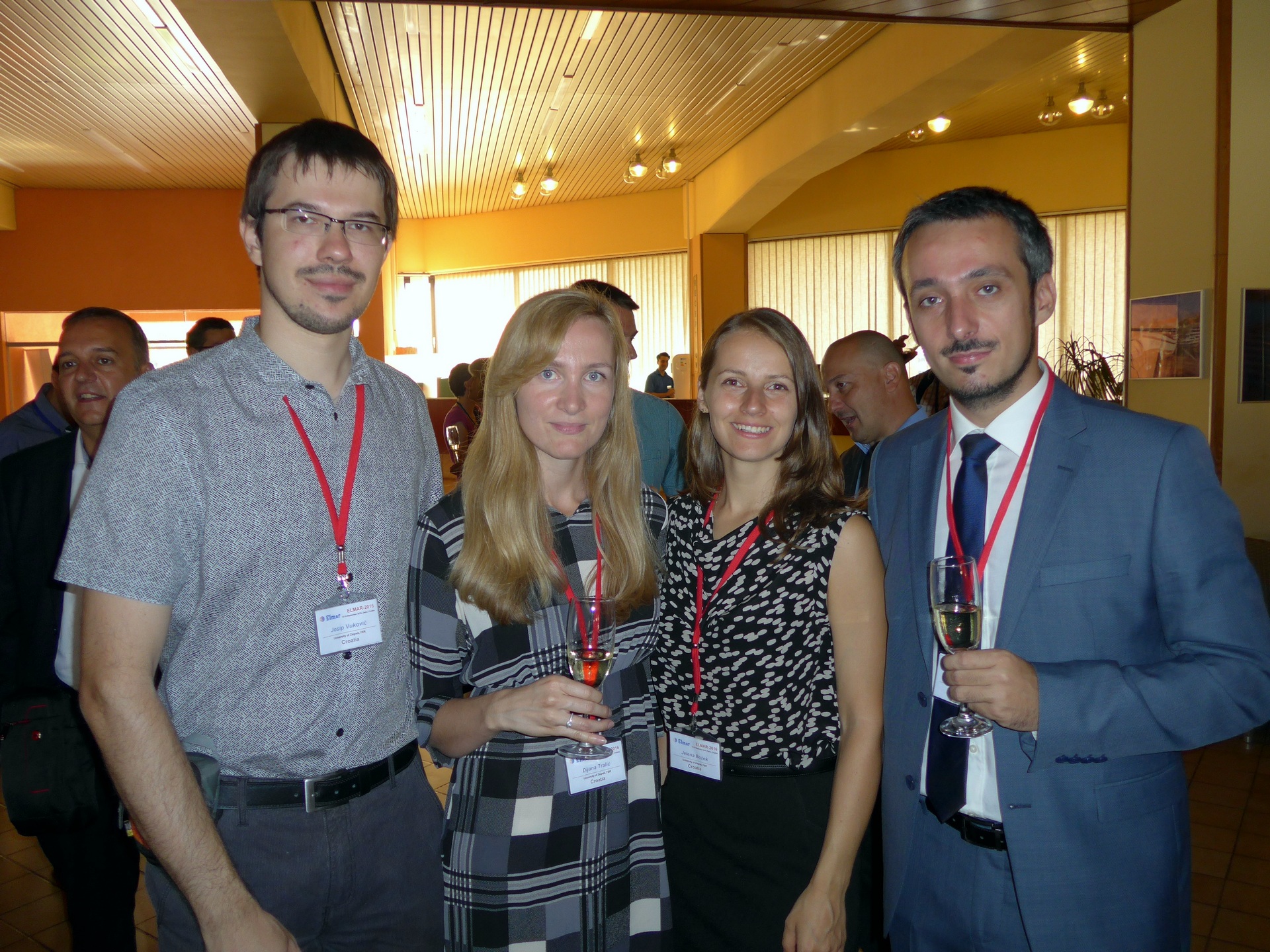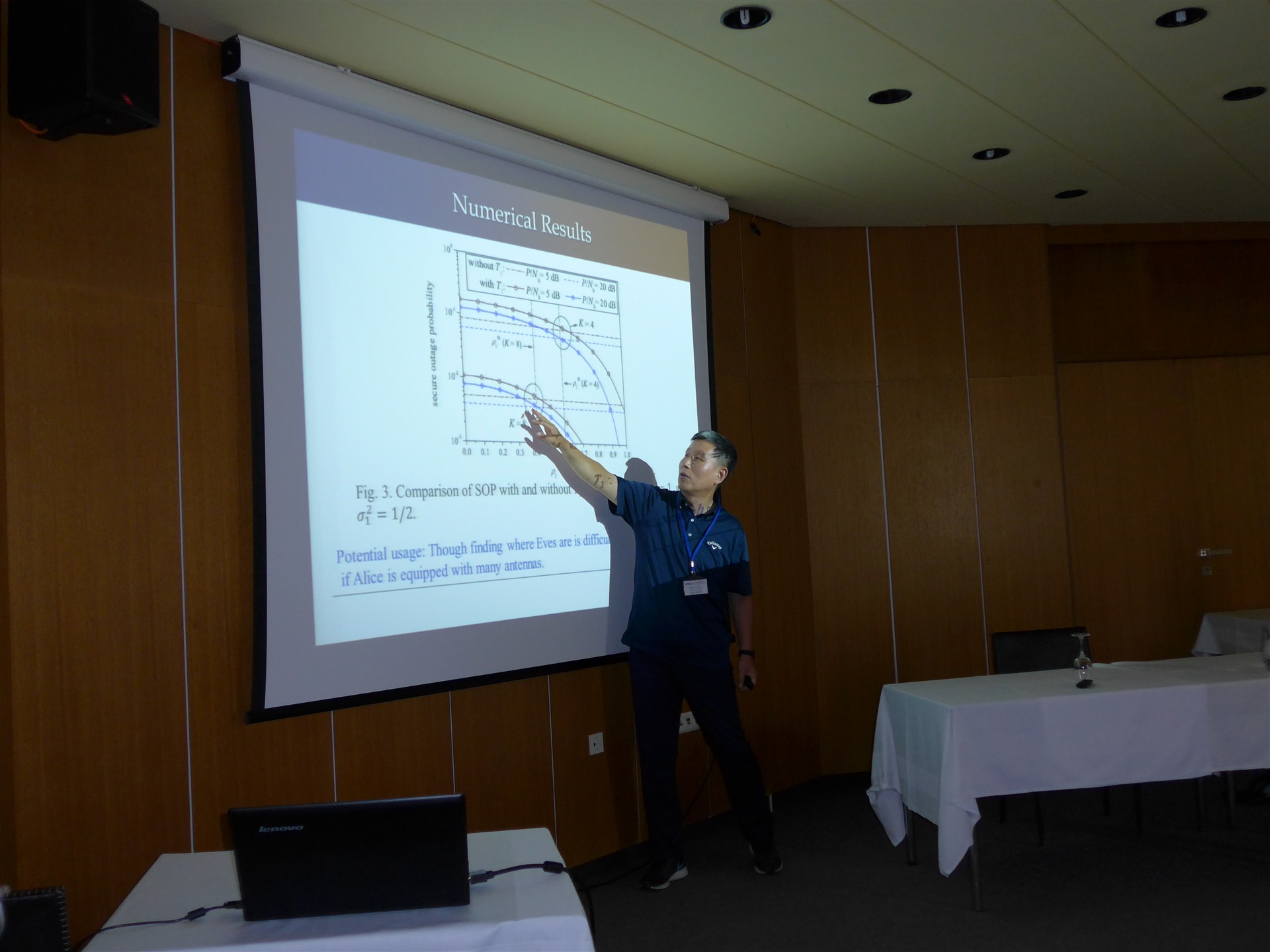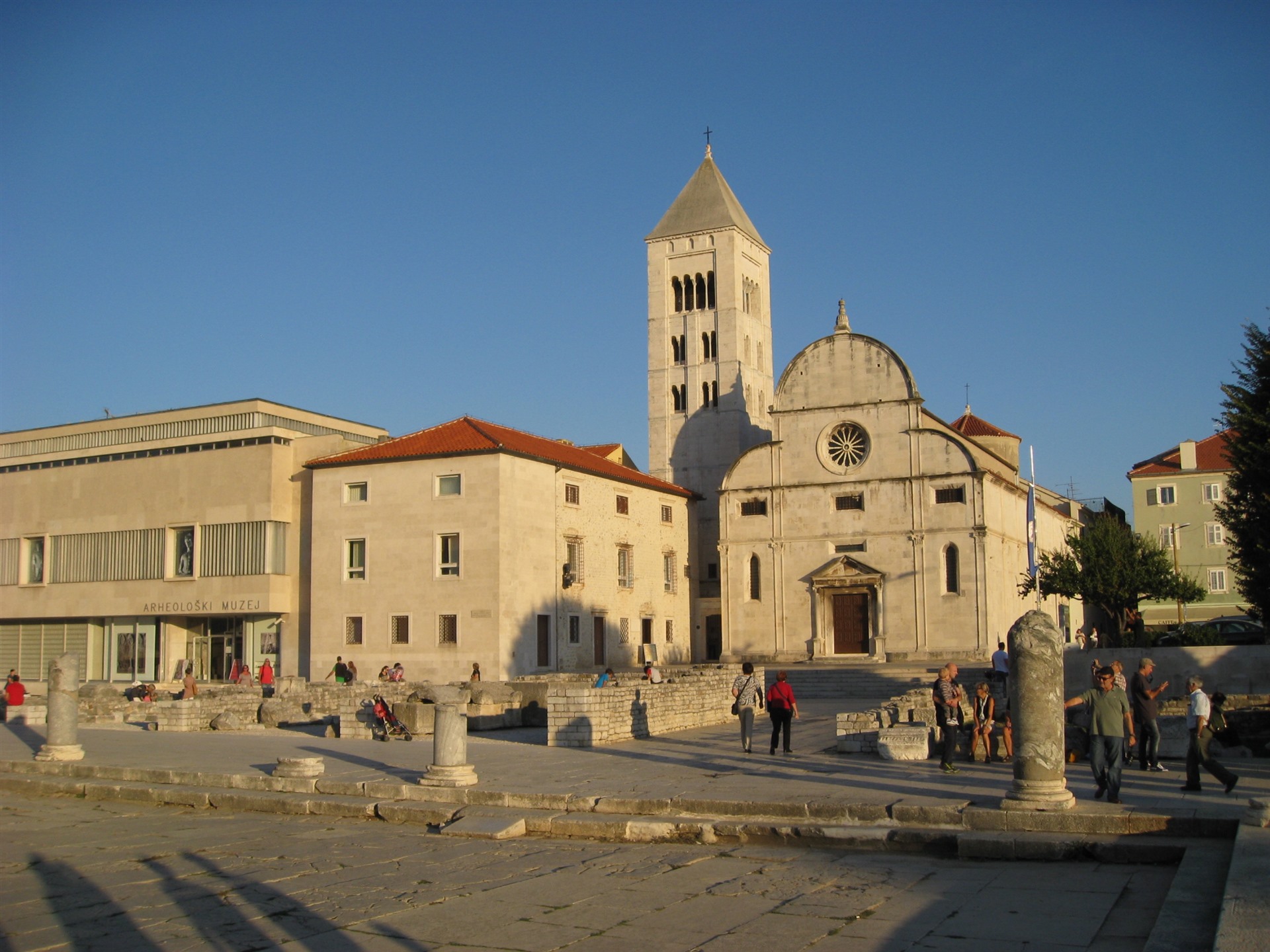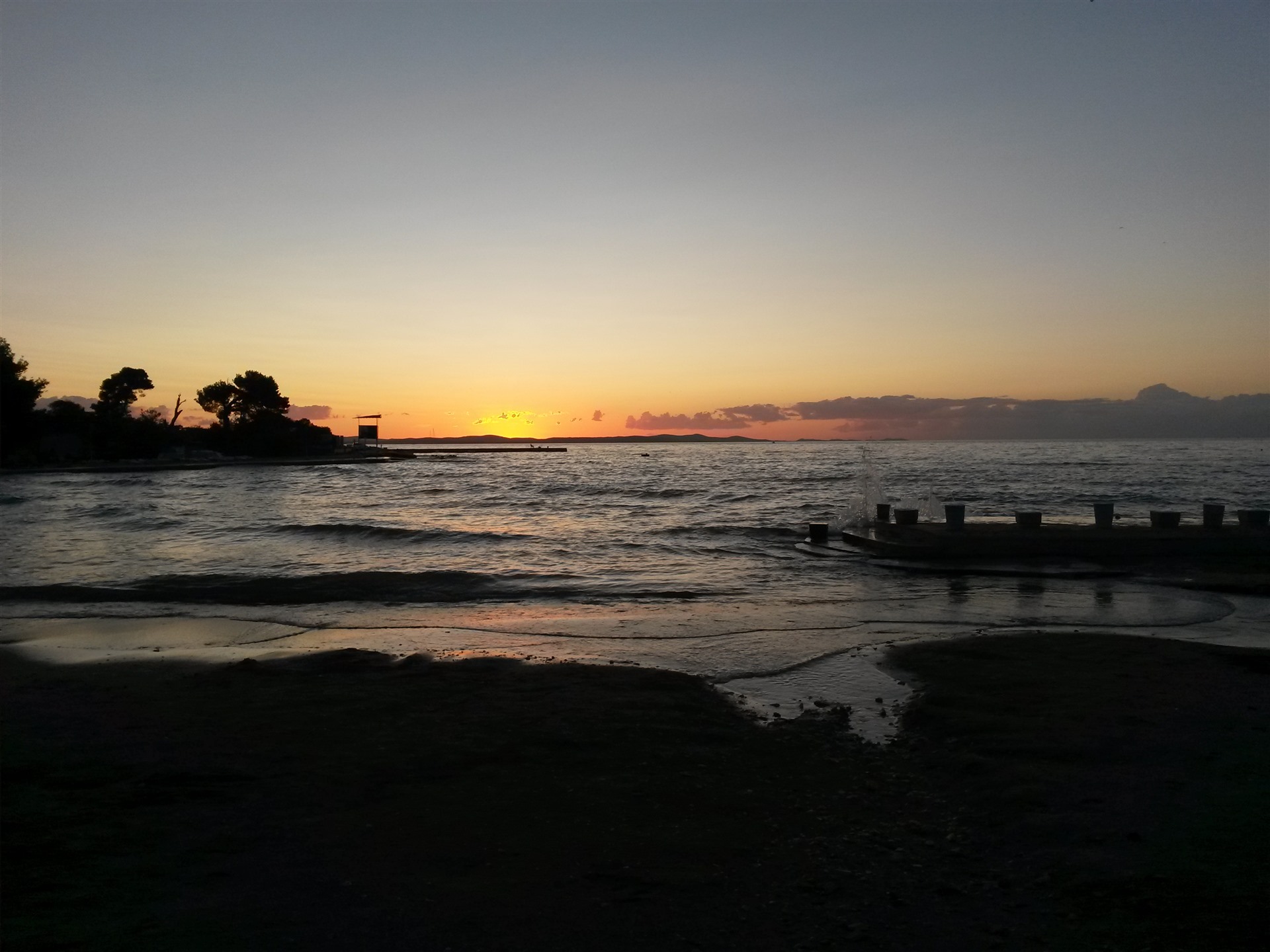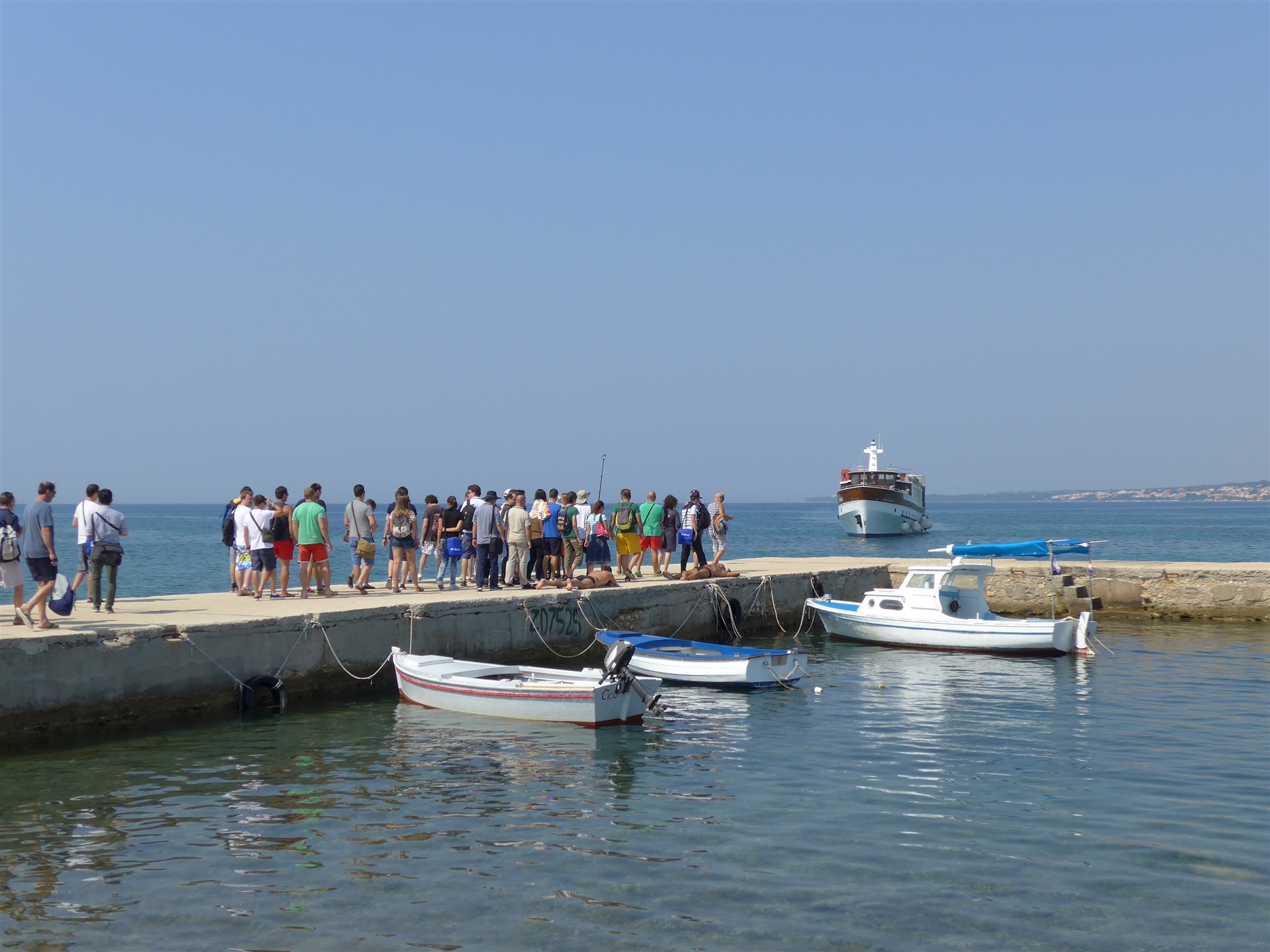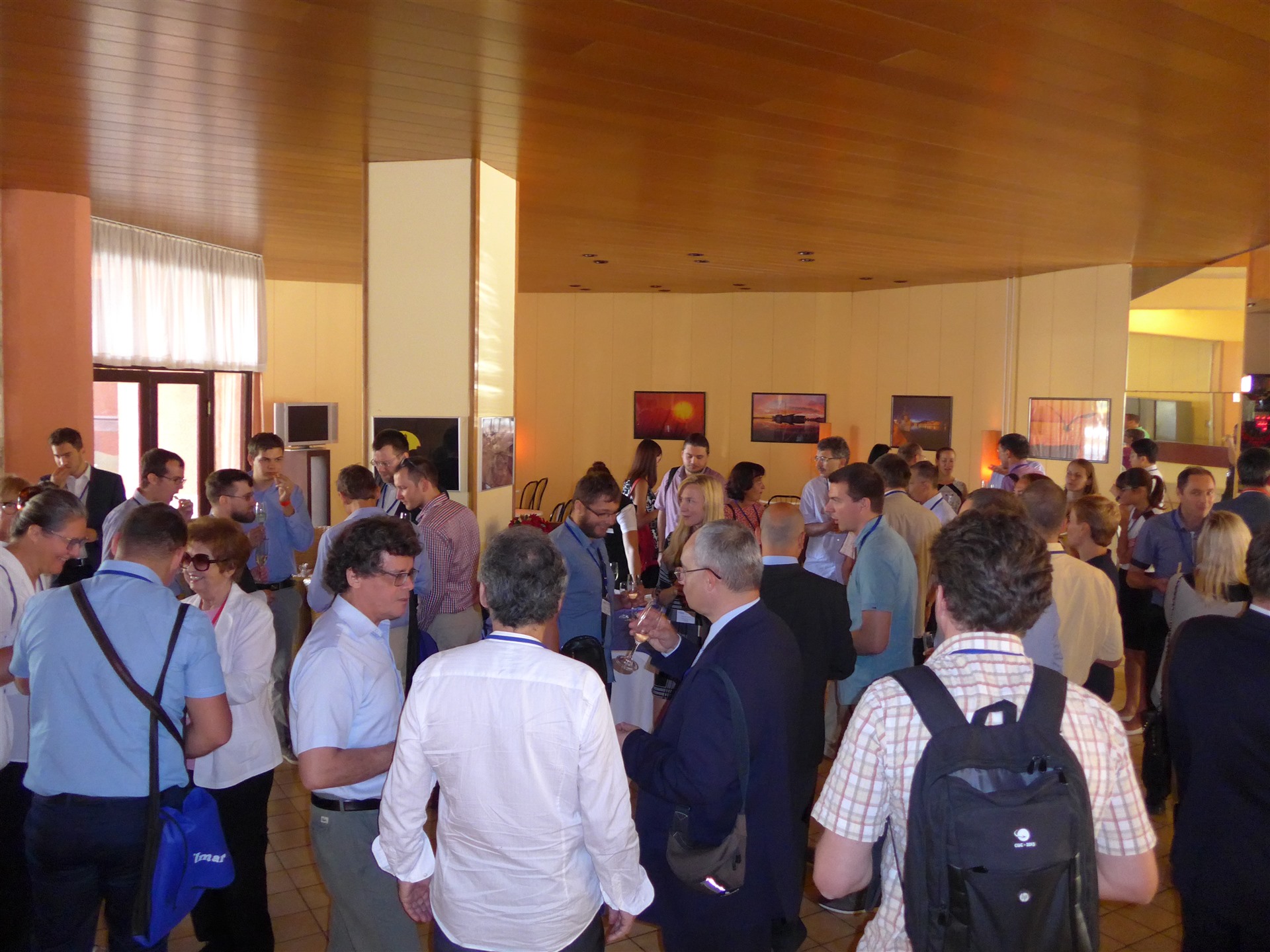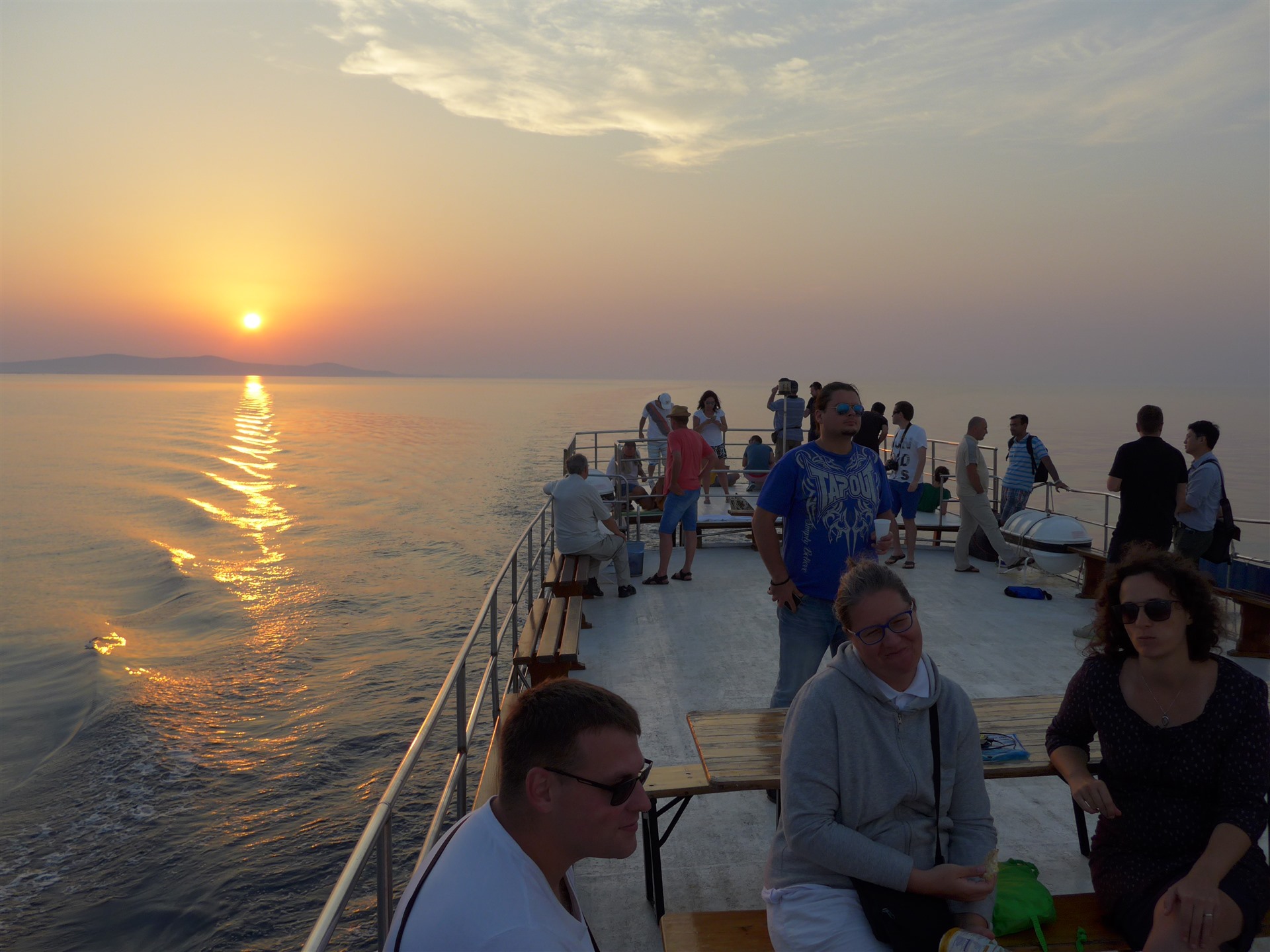The 60th International Symposium ELMAR-2018, the oldest conference in Europe, will traditionally be held in the beautiful old town Zadar on the Croatian Adriatic coast. While the scientific program is expected to create stimulating professional interaction, the crystal clear Adriatic Sea, warm summer atmosphere and wealth of historic monuments promise a pleasant and memorable stay. The symposium is sponsored by the Croatian Society Electronics in Marine (ELMAR).
The scientific program includes keynote talks by eminent international experts and contributed papers. Papers accepted by two independent reviewers and presented at the symposium will be published in the symposium proceedings and IEEE Xplore. Best student paper will be awarded.
Several special sessions will be organized during the symposium. Authors are encouraged to submit their papers to these special sessions.
The 60th International Symposium ELMAR-2018 takes place under the high patronage of the President of the Republic of Croatia, Mrs. Kolinda Grabar-Kitarović

Prospective organizers are invited to submit proposals for special sessions. Special sessions, like regular sessions, are oral technical sessions with at least five speakers each. The special session organizer’s role is to invite the five speakers, ensure that the papers are submitted on time, organise the review, ensure that authors of accepted papers submit the camera ready papers through the official online system and remind participants to register for the conference. The session organiser should also chair the session.
Those willing to organize special session, please contact prof. Branka Zovko-Cihlar, ELMAR-2018 General Chair: elmar2018@fer.hr. The deadline for proposals is February 19, 2018.
Accepted speccial sessions are listed here.
General Chair
Branka Zovko-Cihlar
University of Zagreb, Croatia
Program Chair
Mislav Grgić
University of Zagreb, Croatia
Program Committee
Juraj Bartolić, Croatia
Narcis Behlilović, Bosnia and Herzegovina
Jelena Božek, Croatia
David Broughton, United Kingdom
Aura Conci, Brasil
Marek Domanski, Poland
Janusz Filipiak, Poland
Borko Furht, USA
Mohammed Ghanbari, United Kingdom
Mislav Grgić, Croatia
Sonja Grgić, Croatia
Yo-Sung Ho, Korea
Bernhard Hofmann-Wellenhof, Austria
Ebroul Izquierdo, United Kingdom
Aggelos K. Katsaggelos, USA
Ana Katalinić Mucalo, Croatia
Ismail Khalil, Austria
Tomislav Kos, Croatia
Murat Kunt, Switzerland
Igor Kuzle, Croatia
Panos Liatsis, UAE
Rastislav Lukac, Canada
Lidija Mandić, Croatia
Branka Medved Rogina, Croatia
Borivoj Modlic, Croatia
Marta Mrak, United Kingdom
Mario Muštra, Croatia
Zdeněk Němec, Czech Republic
Miloš Oravec, Slovakia
Jarmila Pavlovičová, Slovakia
Fernando Pereira, Portugal
Irena Petrijevčanin Vuksanović, Croatia
Jan Pidanič, Czech Republic
Pavol Podhradský, Slovakia
Kamisetty R. Rao, USA
Darko Ratkaj, Switzerland
Fabiana Rodrigues Leta, Brasil
Gregor Rozinaj, Slovakia
Markus Rupp, Austria
Gerald Schaefer, United Kingdom
Shiguang Shan, China
Thomas Sikora, Germany
Karolj Skala, Croatia
Ryszard Stasinski, Poland
Luis Torres, Spain
Frantisek Vejrazka, Czech Republic
Dijana Vitas, Croatia
Stamatis Voliotis, Greece
Josip Vuković, Croatia
Krzysztof Wajda, Poland
Nick Ward, United Kingdom
Branka Zovko-Cihlar, Croatia
International Review Committee
Winton Afrić, Croatia
Codruta Ancuti, Italy
Goran Bakalar, Croatia
Sanja Bauk, Montenegro
Alen Begović, Bosnia and Herzegovina
Narcis Behlilović, Bosnia and Herzegovina
Marko Bosiljevac, Croatia
Jelena Božek, Croatia
Miloš Brajović, Montenegro
Jasmina Čaušević, Croatia
Emil Dumić, Croatia
Juraj Fosin, Croatia
Irena Galić, Croatia
Branimir Ivšić, Croatia
Juraj Kačur, Slovakia
Ana Katalinić-Mucalo, Croatia
Jan Kufa, Czech Republic
Hrvoje Leventić, Croatia
Časlav Livada, Croatia
Sadko Mandžuka, Croatia
Marta Mrak, United Kingdom
Mario Muštra, Croatia
Zdeněk Němec, Czech Republic
Miloš Oravec, Slovakia
Jarmila Pavlovičová, Slovakia
Juraj Petrović, Croatia
Jan Pidanič, Czech Republic
Pavol Podhradský, Slovakia
Michal Reznicek, Czech Republic
Renata Rybárová, Slovakia
Gregor Rozinaj, Slovakia
Markus Rupp, Austria
Tomás Shejbal, Czech Republic
Mladen Sokele, Croatia
Isidora Stanković, Montenegro
Zvonimir Šipuš, Croatia
Namir Škaljo, Bosnia and Herzegovina
Dijana Vitas, Croatia
Mario Vranješ, Croatia
Josip Vuković, Croatia
Radovan Zentner, Croatia
Branka Zovko-Cihlar, Croatia
Organising Committee
Jelena Bozek, Croatia
Mislav Grgić, Croatia
Mario Muštra, Croatia
Dijana Vitas, Croatia
Josip Vuković, Croatia
Online proceedings of previous ELMAR conferences are available on IEEE Xplore.
Web pages of previous ELMAR conferences:
ELMAR-2017 Symposium
ELMAR-2016 Symposium
ELMAR-2015 Symposium
ELMAR-2014 Symposium
ELMAR-2013 Symposium
ELMAR-2012 Symposium
ELMAR-2011 Symposium
ELMAR-2010 Symposium
ELMAR-2009 Symposium
ELMAR-2008 Symposium
ELMAR-2007 Symposium
ELMAR-2006 Symposium
ELMAR-2005 Symposium
ELMAR-2004 Symposium
ELMAR-2003 Symposium
ELMAR-2002 Symposium
VIPromCom-2002 Symposium
ELMAR-2001 Symposium
VIPromCom-2001 Symposium
ELMAR-2000 Symposium
ELMAR-2000 Photos
VIPromCom-2000 Workshop
ELMAR'99 Symposium
ELMAR'99 Photos
VIPromCom'99 Workshop
ELMAR'98 Symposium
ELMAR'98 Photos
ELMAR'97 Symposium
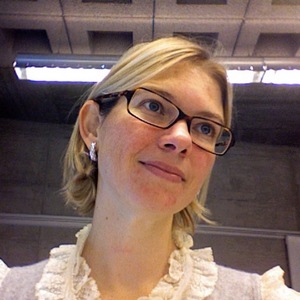
Head of the Visual and Multimodal Applied Learning Laboratory Department of Computer, Control, and Management Engineering University of Rome "La Sapienza"; Italy
Robots are meant to operate in the real world. However, even the best system we can engineer today is bound to fail whenever the setting is not heavily constrained. This is because the real world is generally too nuanced and unpredictable to be summarized within a limited set of specifications. There will be inevitably novel situations and the system will always have gaps or ambiguities in its own knowledge. This calls for robots able to learn continuously over time. In this talk I will focus mainly on the life long learning of perceptual object knowledge, i.e. knowledge about the visual appearance of objects, necessary to the robot to recognize and localize objects in its own environment. I will show how issues like domain adaptation and transfer learning are vital to the robot vision community, and will present results that aim at bridging across these two communities, with the goal to achieve life long learning of visual patterns in autonomous systems.
Barbara Caputo is an Associate Professor at the Department of Computer, Control and Management Engineering of the University of Rome "La Sapienza", where she leads the Visual Learning and Multimodal Applications Laboratory (VANDAL). She received her PhD in computer science from the Royal Institute of Technology (KTH) in 2005. Her main research interest is to develop algorithms for learning, recognition and categorization of visual and multimodal patterns for artificial autonomous systems. These features are crucial to enable robots to represent and understand their surroundings, to learn and reason about it, and ultimately to equip them with cognitive capabilities. Her research is sponsored by the Swiss National Science Foundation (SNSF), the Italian Ministry for Education, University and Research (MIUR), the European Commission (EC) and the European Research Council (ERC).
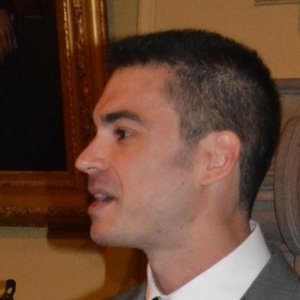
School of Computer Science University of St Andrews Scotland, United Kingdom
Automatic, that is computer based face recognition has long mesmerized the imagination of the general public, and challenged researchers in academia and industry alike. Despite this overwhelming attention and significant efforts at tackling the challenge, face recognition using conventional (visible spectrum) images remains an outstanding problem. However, recent years have seen an increase in the availability of alternative sensing modalities which seem like an attractive way of overcoming some of the inherent limitations of conventional imaging in practice. One of the most prominent ones involves the use of infrared cameras. In this talk I would like to overview the state of the art in this realm, highlight the comparative lack of innovation in IR based compared with conventional face recognition research, and describe several novel algorithms that my group has been working on.
Dr Arandjelovic graduated top of his class from the Department of Engineering Science at the University of Oxford (MEng). In 2007 he was awarded a PhD by the University of Cambridge where he stayed for 4 more years as Fellow of Trinity College Cambridge. Currently he is a faculty member of the School of Computer Science at the University of St Andrews in Scotland. Ognjen's main research interests are computer vision and pattern recognition, and their application in various fields of science, especially biomedicine. He is a Fellow of the Cambridge Overseas Trust and a winner of numerous research awards.
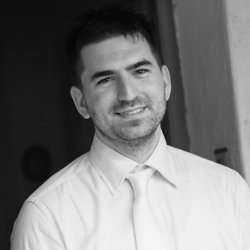
Department for Approving and Monitoring Public-Private Partnerships Projects Croatian Agency for Investments and Competitiveness Zagreb, Croatia
Technical progress, modernization and market demands for new services and technologies in wireless terrestrial broadcasting cause that traditional FM spectrum, especially in the large urban areas is fully utilized, without any possibilities for further expansions, due to the non-availability of the new frequencies. On the other side, end users are expecting more than a sound from radio network. Investing in New Digital audio broadcasting radio (DAB) technology can provide a new platform of programs and services with a more and better quality than traditional FM frequency spectrum. For many countries, due to the high public sector deficit and debt, financing new DAB technology present a certain challenge. Decision makers in the public sector are facing with budgetary restrictions and from another side - significant market demand for new technologies. The solution could be found in private sector participation, which over the past few decades, become a trend and a way of delivering public services. Private sector participation may involve financing, design, construction, operation and/or maintenance of infrastructure - which is traditionally procured and provided by the public sector - such as transportation (roads, airports), social infrastructure (schools, hospitals), government offices, as well as digital infrastructure (DAB, DAB+, FTTH, etc). The main aim of such cooperation is risk and reward principle. Both sectors, public and private retain their own identity and responsibility while the co-operation is based on clearly defined divisions of tasks and risks. Private sector has new opportunity to raise maximum value for money while public sector can deliver better quality of infrastructure for the lower price or the same quality but with significant savings.
Domagoj Dodig is Head of Department for Approving and Monitoring Public-Private Partnerships Projects in Croatian Agency for Investments and Competitiveness and external associate of the Faculty of Law Zagreb. He has obtained a degree in Finance and currently is finishing PhD study at the Faculty of Economics Zagreb. With more than 9 years of experiences in PPP, he was a member of the team who created complete legislative and institutional PPP framework in Croatia. During his work, he has participated on several EU Technical assistances projects on PPP’s and Concessions in Western Balkan countries. As a trainer and lecturer, he has executed various workshops regarding PPP’s in Croatia and WBIF countries. Domagoj's main research interests are focusing on finance and risks analysing in PPP's, Concessions and Project Finance Transactions as well as blending PPP's with EU funds and Financial instruments. He published several papers regarding Public and Private sector cooperation in providing public infrastructure projects.
Assistant Professor Mario Muštra, PhD Associate Professor Sadko Mandžuka, PhD Faculty of Transport and Traffic Sciences University of Zagreb, Croatia mmustra@fpz.hr smandzuka@fpz.hr
Associate Professor Irena Jurdana, PhD Faculty of Maritime Studies University of Rijeka, Croatia jurdana@pfri.hr
Professor Sonja Zentner Pilinsky, PhD Zagreb University of Applied Sciences, Croatia sonja.zentner@tvz.hr Alberto Teković, PhD Access Network Engineering, Vipnet d.o.o., Croatia a.tekovic@vipnet.hr
Professor Sonja Zentner Pilinsky, PhD Zagreb University of Applied Sciences, Croatia sonja.zentner@tvz.hr
Dr.-Ing. Patrick Henkel Institute for Communications and Navigation Technical University of Munich, Germany patrick.henkel@anavs.de
Tigran Vržina Odašiljači i veze d.o.o., Zagreb Tigran.Vrzina@oiv.hr
Prof. Branka Zovko-Cihlar Društvo ELMAR, Zadar branka.zovko@fer.hr
If you are interested in submitting a paper to ELMAR symposium, you need to prepare a full paper on four (4) pages. Additional pages will be charged (the paper is required to have even number of pages).
Only original papers that have not been published or submitted for publication elsewhere can be submitted.
You should use A4 paper size for your ELMAR paper. All conference articles must adhere to the IEEE Xplore PDF specification for compatibility. Therefore, authors are asked to carefully study IEEE Xplore PDF requirements and convert their papers to PDF based on these requirements. Otherwise, paper can be rejected without review. Please prepare your paper according to the ELMAR paper template:Please send your submission electronically in PDF-format using Microsoft Research Conference Management Toolkit (CMT).
Select the symposium topic that most closely matches the subject area of your paper. This topic selection will be used to match reviewers to your paper, and to include your paper in the most appropriate session in the symposium program, so it is important to make a careful selection.
Special Session papers should not initially be submitted through CMT. It should be done by e-mailing the session organizer directly. After being accepted, special session camera-ready papers should be submitted through CMT.
Commercial references (such as Product Names, Brands, or Part Numbers) are not permitted in the body of the paper. Commercial presentation opportunities are available during sponsored events at the symposium. Please contact the Program Chair for more information.
Authors submitting the papers should be able to communicate effectively in English. Individuals presenting papers at the symposium should be able to effectively deliver the paper in English to an international audience - authors who are unable to do so themselves, are obliged to find alternative speakers who can effectively present their paper.
It is required that each accepted paper will be orally presented (appx. 15-minutes presentation time) by its author, co-author or a presenter (non-author). Symposium organizers will not send proceedings hard copies to no-show authors and such papers will be excluded from online proceedings. No-show authors will be excluded from all future ELMAR paper submissions.
Early registration (until June 26 2018):
- ELMAR and IEEE members: 450 €
- Standard: 490 €
Late registration (June 27 2018 - July 25 2018):
- ELMAR and IEEE members: 550 €
- Standard: 590 €
Two additional pages: 100 €
Additional paper: 100 €
Accompanying person on social events: 80 €
* All prices include VAT
Registration fee includes:
- Participation on all symposium sessions
- One printed symposium proceedings per registered participant
- Lunches for participants
- Welcome cocktail
- Symposium dinner
- Guided Zadar city sightseeing
- Excursion
by boat or bus
The Registration form is now available.
Falkensteiner Borik Hotel Complex, hotels "Funimation" and "Donat"
Majstora Radovana 7
HR-23000 Zadar
Croatia
The Hotel reservation form is now available.
